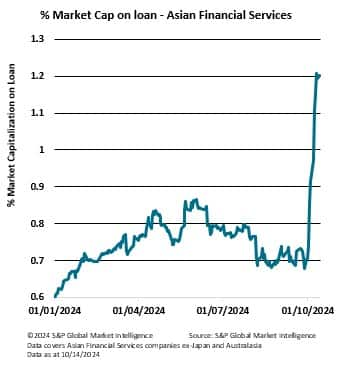The recent stimulus package in China has led to an increase in short interest across Asian financial service companies, reflecting a shift in investor sentiment, writes Matt Chessum, director of Securities Finance at S&P Global Market Intelligence.
As the government implements measures to stimulate economic growth, market participants are closely monitoring the potential impacts on financial institutions. This heightened scrutiny has resulted in a rise in short selling as investors seek to capitalize on perceived volatility across the sector.

Moreover, the stimulus measures appear to have generated mixed reactions among analysts and investors. While some view the package as a positive step toward economic recovery, others remain cautious about the long-term implications for financial service companies. This divergence in opinions has created an environment where short selling becomes a strategic move for those looking to hedge against potential fluctuations in stock prices, driven by the evolving economic landscape.
Additionally, as financial service companies navigate the complexities introduced by the stimulus, the increased short interest, as shown by the percentage of market capitalization on loan across the sector, can be seen as a reflection of broader market dynamics. Investors may currently be weighing the potential benefits of the stimulus against existing challenges within the sector, leading to a more nuanced approach to trading. This trend underscores the importance of ongoing analysis and adaptation as the market responds to the evolving economic conditions in China and beyond.
